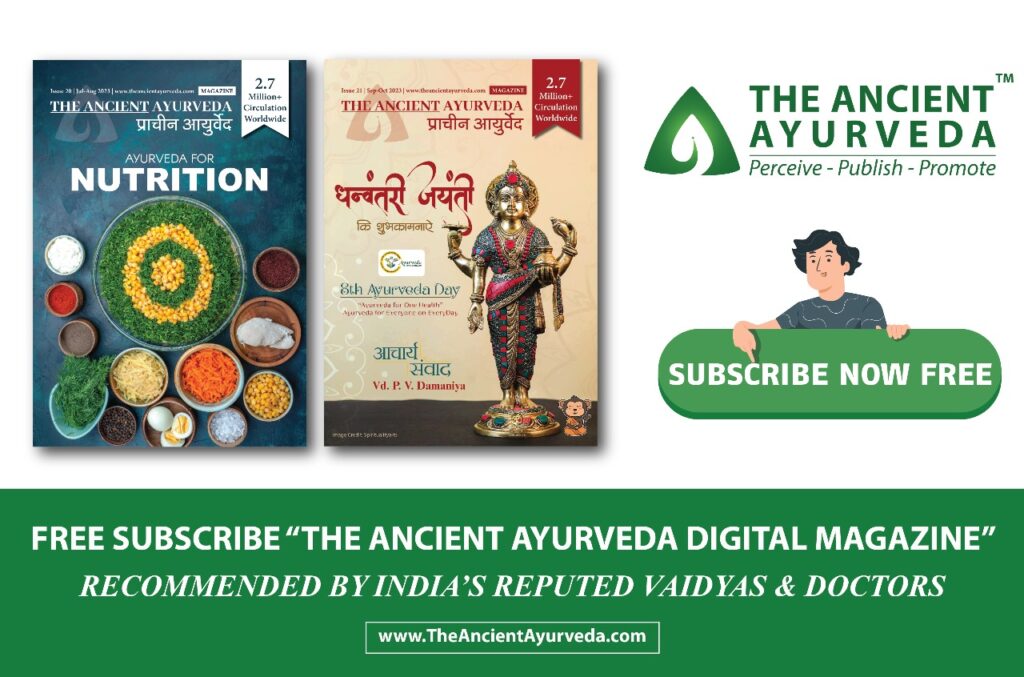There are 8 branches in Ayurveda namely Kayachikitsa, Balachikitsa, Grahachikitsa, Salakyatantra, Salyatantra, Vishachikitsa, Rasayana and Vajeekarana. The section of Prasootitantra- Streeroga is included in the branch of Balachikitsa. Prasootitantra primarily deals with preconception, antenatal and postnatal care while Streeroga deals with the management of diseases concerned with female reproductive system.
Why woman needs special care?
Woman, by nature is not self-focused as far as the health is concerned. She traverses through puberty, reproductive age and then to climacteric through physiological life events of pregnancy and delivery and, with rhythmic menstruation. Well-understanding of her physiology, as well as intermittent fluctuations in her hormonal milieu, in the backdrop of a multitasking lifetime, is essential to enhance her wellness.
Pre-conceptional care:
In this era, various newly emerging congenital disorders have been noted among children. Among the couples who are planning to conceive, ayurvedic preconception health programmes have been recognised well. Hence, the branch of Prasootitantra is gaining more relevance these days. Prasootitantra’s concept of care has got some unique advantages on the couple. Ayurvedic science upholds the importance of healthy uterus, optimal internal environment in the body, adequate nutrition and healthy gametes in the formation of an ideal progeny. This can be compared to healthy seedling production from a fertile field, favourable season, proper nurturing and healthy seeds. Those who have a history of abortions, failure to conceive after few years of married life and recurrent assisted attempts and, those who have children with developmental anomalies often seek fertility care from ayurvedic clinicians prior to next conception planning. Strategies will be planned after collecting detailed history from the couple. Menstrual history of the female, marital and obstetric history, their medical and family history, the lifestyle of the couple will be assessed in detail. Though the couple is being addressed, the health needs of female are given prime importance. Interventions will target on the well-being of the body as well as mind which in turn aid to enhance fertility. Ayurvedic approach insists on measures to adopt for normal functioning of the female reproductive entity. This branch shares the ways to beget healthy sperm as well as healthy ovum and thereby a healthy embryo.
Antenatal care:
Ayurvedic antenatal health care check-ups aim at a healthy pregnancy, normal delivery and a healthy baby. Such antenatal visits give clear cut ideas on the overall health status of the lady including psychosocial well-being. The pregnant lady can stick on to the ayurvedic pregnancy care not only for the management of her ailments but also for the specific antenatal routine care which has been a practice from generations. Ayurveda recommends individualised care considering the physical, mental and social well-being of pregnant lady on every visit. Monthly prescribed medications holding on to a wholesome diet and mode of living are beneficial for healthy pregnancy outcomes.
Postnatal care:
Postnatal care tops the areas of ayurvedic health care practice among the rural population. Of course, there are several traditional postnatal care practices and there are variations due to regional, cultural and religious influence. Ayurvedic postnatal health care is focused on the health of the mother and the baby. Moreover, it has got long term outcomes on the general health of the lady. The mother receives individualised dietetic advice along with appropriate medical interventions with respect to her physical and emotional health status.
Streeroga:
Ayurveda considers most of the menstrual problems secondary to general health issues. The speciality care has to be planned after reshaping the metabolic aberrations. It has been noted that a major percentage of the women population often approach Ayurvedic clinicians for the management of their menstrual abnormalities. Painful menses, Heavy and prolonged menstrual bleeding, Endometriosis, Premenstrual syndrome, Menopausal symptoms, Uterine and vaginal prolapse have a negative impact on the routine of the working class as well as a homemaker. Ayurveda plays a pivotal role in improving their quality of life.
Polycystic Ovarian Syndrome is a common medical condition in women of reproductive age. It is an endocrine, metabolic and reproductive disorder. It is the most common cause of anovulatory infertility too. Ayurvedic medicines with strict adherence to a healthy lifestyle will help to fast-track better outcomes. Diminished Ovarian reserve is another major concern in current fertility care. Ayurveda helps to enhance fertility in such kind of issues. Ayurveda has a promising role in the treatment of infections and inflammations associated with the female genital tract. Ayurvedic science shed light on viewpoints of management of benign tumours like ovarian cysts & fibroids. Women used to seek non-surgical measures for these clinical conditions. In general, ayurvedic interventions are very effective and safe in addressing the disorders of the female reproductive system.
Conclusion:
In short, women have unique reproductive physiology and Prasootitantra – Streeroga focuses on the health care of women throughout their reproductive life.

